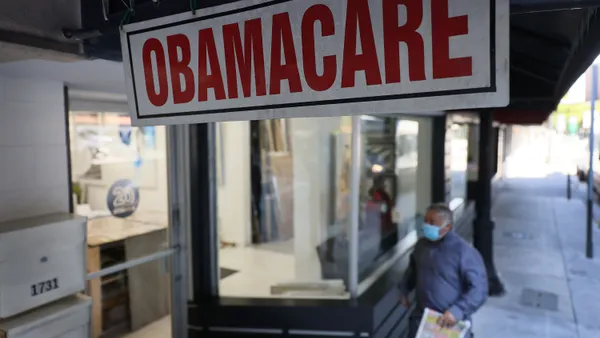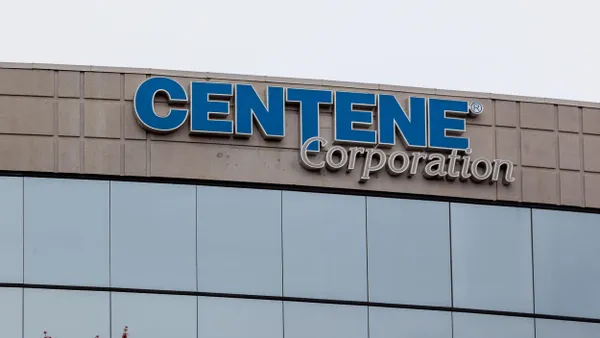Dive Brief:
- A federal judge has thrown out a Biden-era rule that would have clawed back billions of dollars in overpayments from Medicare Advantage insurers in a major win for the industry.
- On Thursday, Judge Reed O’Connor of Texas’ Northern District vacated the Medicare Risk Adjustment Data Validation, or RADV, rule, determining that the CMS didn’t properly notify the industry about the changes in violation of the Administrative Procedures Act.
- The ruling complicates the CMS’ plan to beef up audits of MA payers and more broadly crack down on overpayments in the privatized Medicare program.
Dive Insight:
CMS finalized a new methodology for calculating payment recoveries from MA audits in January 2023.
The rule allowed regulators to sample a small number of MA members to find unsupported diagnoses that suggest a payer is inflating risk scores to get higher reimbursement from the government. Regulators then planned to extrapolate those results across an entire contract and recoup repayments based on that estimate.
But Humana, a major MA insurer, sued to block the rule later that year. Humana’s case hinged on regulators’ decision to eliminate a “fee-for-service adjuster,” which was meant to ensure that the CMS paid MA plans the same amount per enrollee that it would expect to pay in traditional Medicare — a principle called actuarial equivalence — from the auditing methodology.
Humana said that regulators changed their justification for reversing the fee-for-service adjuster between the rule’s proposed and final versions. Without the adjuster, MA plans would be unfairly penalized since doctors in traditional Medicare may not be incentivized to log all of their patients’ health conditions, the insurer argued.
On Thursday, O’Connor agreed.
“Because there was no meaningful notice of Defendants’ ultimate finding that actuarial equivalence does not apply to RADV audits, there was no meaningful dialogue regarding the costs and benefits of the surprise changes,” O’Connor wrote in his ruling, arguing that the harm to insurers was exacerbated by the rule’s retroactive application back to 2018.
“Consequently, Plaintiffs, and others, will potentially bear enormous unforeseen costs,” he wrote.
O’Connor’s decision is a victory for Humana, the second-largest payer in the MA program, along with other insurers who opposed the more stringent retroactive audits. The government had expected to claw back roughly $4.7 billion over ten years through the new RADV audit methodology.
“We are pleased with the Court’s order and are reviewing the decision to understand its full implications,” a Humana spokesperson said over email.
The CMS could still appeal the judge’s decision, or reissue the rule following proper notice-and-comment procedures, though the agency did not respond to a request for comment on next steps.
In MA, private insurers receive lump sums from the government to cover the care of Medicare seniors. Plans receive more money for sicker patients, creating an incentive for plans to plans to inflate risk scores.
Influential congressional advisory group MedPAC estimates that the CMS will pay MA insurers $84 billion more this year than the government would have if those members had been in traditional Medicare. Upcoding was responsible for almost half of those overpayments.
The two largest MA insurers — UnitedHealthcare and Humana — alone account for billions of dollars in excess Medicare spending annually due to aggressive coding of their patients, according to a recent analysis of CMS data.
Amid growing evidence of upcoding, top health regulators in the Trump administration have pledged to scrutinize the practice. This spring, the CMS announced it would ramp up MA overpayment audits — a plan that could be derailed by O’Connor’s decision, given it’s underpinned by the RADV methodology enacted by the 2023 rule.
Members of Congress have also zeroed in on reforming risk adjustment to curb overpayments, though such policies were left out of the GOP’s massive tax and policy megabill passed in July.














